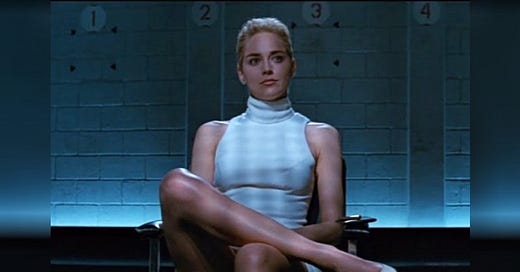My mom spent an extremely difficult seven days in the hospital at the end of her life before passing away on All Saints Day, 2021. I was with her—by her side—navigating an extremely complex and heartbreaking situation as an only child who suddenly had to take over as primary caregiver for my father, who had rapidly progressing Alzheimer’s disease.
Taking on the weight of a dying parent and the assumption of full caregiving responsibility at the same time—shuttling back and forth from room to room, making sure my dad didn’t wander too far down the hospital corridor and get lost, while simultaneously dealing with the constant stream of doctors, nurses, and hospice workers—would almost certainly have been enough to break me in normal circumstances. But that week was not normal.
I received a strange gift on the first evening, as I knelt by my mom’s bed holding her hand: I felt as though I knew exactly what needed to be done, where to be, and what to say, even in the face of incredibly difficult choices. It gave me a peace that the world could not give.
It certainly didn’t make the pain less real, and it didn’t make it easy. I felt the full weight of the suffering. But as I walked the halls of St. Mary’s Hospital in Grand Rapids—just a hundred feet from where I had been born about 39 years earlier—I felt I knew things I didn’t understand how I knew. I would feel compelled to walk to the end of a hallway to pray, for example—drawn to it by some inexplicable urge—only to encounter the hospital chaplain at the exact moment he turned the corner. Things fell into place in quiet, almost imperceptible ways. I could give you 100 examples, but some things are too holy to share.
That gift lasted for about ten days. Shortly after my mom died and I gave the eulogy at her funeral, it was gone.
I can’t say it was gone entirely—I still have moments of lucidity and consolation that I cannot explain, which propels me toward the true, the good, and the beautiful when I have overcomplicated the choices I face—but nothing approaching the sustained clarity of that week. What happened during those days in the hospital remains, at some level, a great mystery to me.
There are times when we act without hesitation, without weighing our options, without consulting a plan. In these moments, we do what needs to be done, not because we have calculated its rightness, but because something in us is already attuned to it.
Instinct, in this deeper sense, is not a reflex. It is not a primal force that overrides reason. It is the fruit of formation. Over time, our habits and choices shape a kind of interior response to reality. When that response becomes aligned with the good, it can be trusted. When it is shaped by fear, pride, or imitation, it becomes a source of confusion.
And sometimes, like in my case, it is given as a pure gift—a grace.
The Catholic tradition has a name for this deeper kind of instinct.





